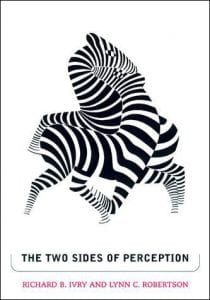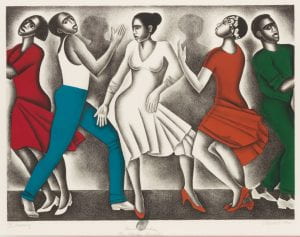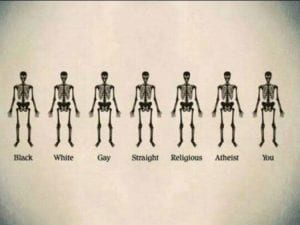When I first heard/saw the term “ecofeminism” I thought, it could only have one meaning; all women regardless of race, sex, class, fighting to preserve nature. However, getting to understand the meaning of the word truly dismantles it a bit more; breaking it down to many parts of “ecology” in “feminist” terms. At the center of this complexed term is “duality” which may shape many aspects of our lives. Yet it conflicts with the way in which history has linked women’s lives, in upkeeping roles set forth in historic, philosophical terms. When I say this, I’m talking about the fallacies that have been embedded into our society for generations. These are the fallacies that Hobgood-Oster’s reading sheds light on, as she discusses the many “dualistic” components in regard to “patriarchy” and “oppression” of women:
“Ecofeminism claims that patriarchal structures justify their dominance through categorical or dualistic hierarchies: heaven/earth, mind/body, male/female, human/animal, spirit/matter, culture/nature, white/non-white” (Hobgood-Oster).
My interpretation of this is that not all facts are true and not all truth are facts and, some historical facts have never been proven.
My understanding of how we resolve the issues that arise in “ecofeminism”, is that all feminist would need to go into every conflict with eyes wide open. This means to have difficult conversations in order to “deconstruct” the “patriarchal systems” that Hobgood-Oster also mentioned. And all too often, bias having to do with race, religion, sex, etc., shatters the core of human as well as animal nature. It cannot just be one person, one race, or one community, that makes a difference, but we CAN make small changes in order to have a big echo:
“The political activisms and alliances stemming from ecofeminism modify in relationship to the perceived justice issues being confronted in differing cultural and historical settings’’ (Hobgood-Oster).
In a prior WGS class, I learned the word “intersectionality” coined by Kimberly Henshaw. This is similar to dualism but it has a positive connotation, taken to mean no one thing is alike because we intersect; we experience systemic oppressions differently. But what we have in common is the need for equality or non-biasness. What is not part of your life that you need to be a part of your life? For me, I would say it is important for us to speak up against injustice. I look up to young women like little Geta Thunberg, who speaks avidly about climate change and Majora Carter: Ted Talk Video , they should inspire all women. And as I read Warren’s eight connections, the following resonated:
Many ecofeminists have focused on uncovering empirical evidence linking women (and children, people of color, the underclass) with environmental destruction. (Empirical and Experiential Connections 3, Warren)
One crisis could cause a rippled effect and this is somewhat of a poem I made to reflect the truth as I see it. Like dropping trash on the street; the rain or wind then pushes it like a wind-blown sheet; into the ocean, thereby, infecting fish, birds as well as human; if you don’t eat see-food, still be aware; you’ll feel the difference in the ear.



